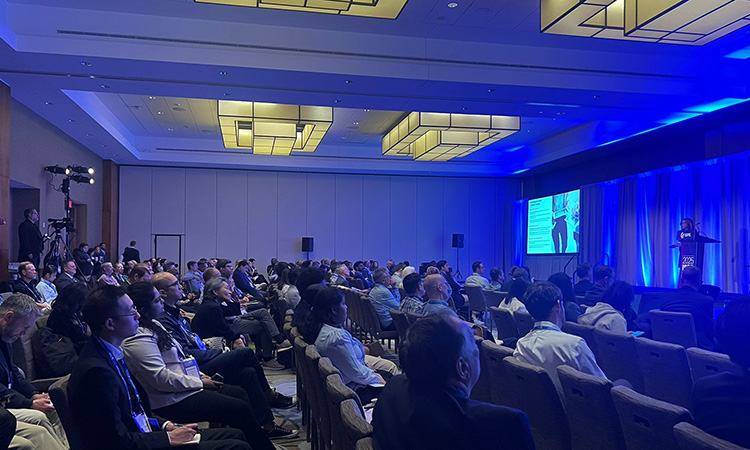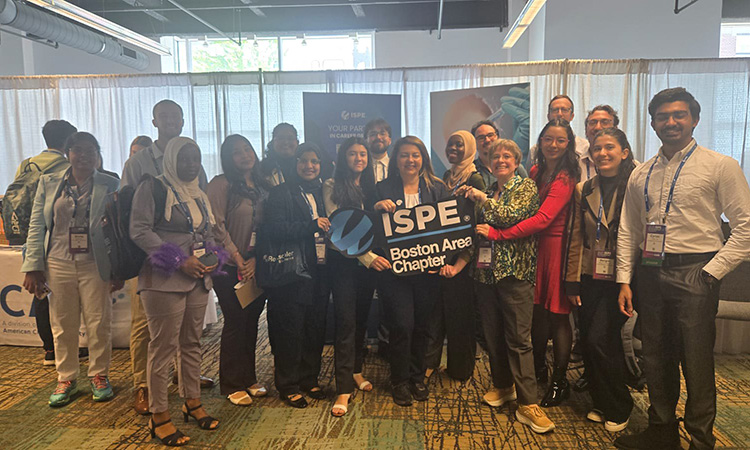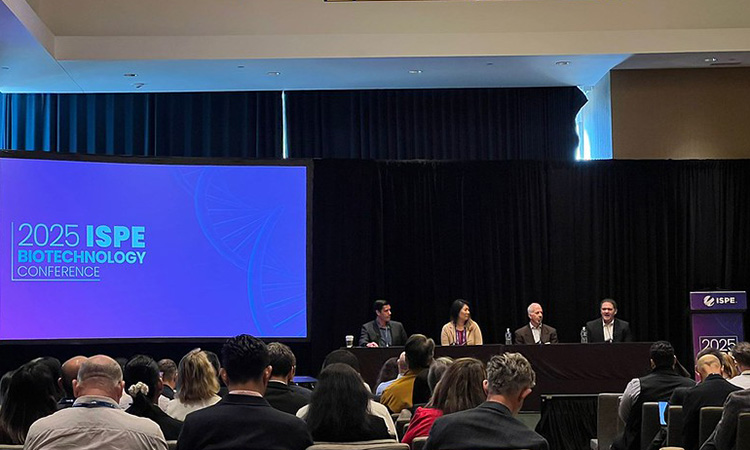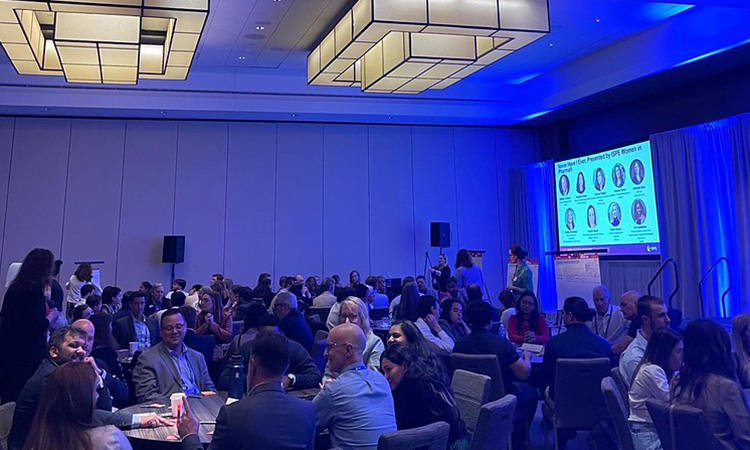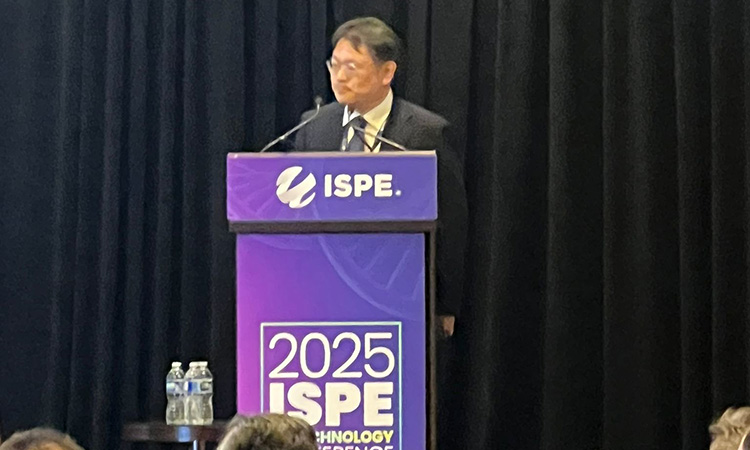

2025 ISPE Biotechnology Conference
Thank you to all who made the 2025 ISPE Biotechnology Conference such a big success!
Thank you to all who made the 2025 ISPE Biotechnology Conference such a big success!
Please Note:
- All full-access registration (virtual & in-person) includes access to speaker presentations, on-demand content, and other conference material.
- NOTE: Material is only available from those speakers/companies that permitted distribution.
- Registrants will receive email notification when the on-demand content is available.
- On-demand content is accessible for 90 days.
Top Industry Thought Leaders at the 2025 ISPE Biotechnology Conference.
2025 ISPE Biotechnology Conference Photo Gallery
Featured Speakers
SVP Head of Global Quality Compliance & Systems
Takeda - Boston
Head of Institute Surveillance
Austrian Agency for Health and Food Safety (AGES)
Vice President, Operations Commercialization
Amgen
Group Vice President, API & Dry Products Manufacturing
Eli Lilly and Company
Vice President – Head of CMC Regulatory Affairs
Gilead Sciences
Your Conference Experience
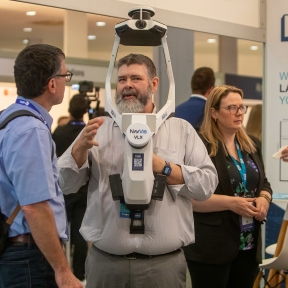
Expo Hall
Expo Hall
Explore groundbreaking innovations and network with industry leaders at our dynamic expo hall.
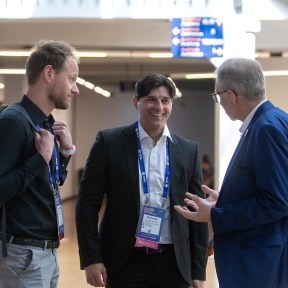
Networking
Networking
Connect with top industry experts and expand your professional network at our exclusive networking sessions.

Live Streams
Live Streams
Experience the conference from anywhere with our interactive live stream.

On-Demand Content
On-Demand Content
Access exclusive conference content anytime with our on-demand library for 90 days.
5
+
Networking Hours
19
+
Education Hours
50
+
Exhibitors
60
+
Speakers
Conference Highlights

When Analytics Meet Quality
In today’s data-driven world, the quality management paradigm in the biotech industry has transcended traditional methodologies, embracing advanced analytics and emerging technologies to redefine efficiency, precision, and speed to market. The adoption of machine learning, predictive analytics, and big data has revolutionized quality management, enabling companies to address complex challenges with unprecedented accuracy. The Analytical Enhanced Quality track planned for the 2025 ISPE Biotechnology Conference explores the intersection of analytics and quality management in biotech, highlighting the role of advanced analytical techniques, the impact of new technologies, and their implications for the workforce of today and tomorrow.

Empowering Biotech’s Future: Operational Readiness and Cultural Excellence Take Center Stage at the 2025 ISPE Biotechnology Conference
In a world defined by rapid scientific progress and evolving market demands, the ability to adapt, innovate, and sustain excellence is no longer optional—it’s essential. The 2025 ISPE Biotechnology Conference, taking place June 2–3 in Boston, Massachusetts, USA, and virtually, brings this reality into sharp focus with the Operational Readiness and Cultural Excellence track, a powerful series of sessions exploring how organizations are preparing both people and systems to thrive in biotech’s future.

Where Are We on the Digital Road Map? Find Out at the 2025 ISPE Biotechnology Conference
Digital transformation isn’t a future concept in the biopharmaceutical industry—it is already impacting manufacturing and quality control processes. Recent advancements and best practices will be showcased at the upcoming 2025 ISPE Biotechnology Conference, where the track “Implementing Digital Initiatives in the Biopharmaceutical Industry: Where Are We on the Road Map?” dives deep into the real-world progress, challenges, and wins from across the industry.
Testimonials
International Program Committee
Chair
Global Head of Group Smart Manufacturing
Merck KGaA Darmstadt, Germany
North American Liaison
Associate Director, Small and Large Scale Molecules; Professor of Practice, IIT
Moderna
Board Liaison
Founder
Robur Life Science Advisory AB
Women in Pharma® Liaison
Director
Merck & Co Inc
Chapter Liaison
Global Head of Operational Excellence, Biologics Network
Takeda
Director, Life Sciences
Barry-Wehmiller Design Group
Senior Director, Quality Compliance BioNTainer
BioNTech US Inc.
Compliance Head for Vaccines
Sanofi
Regulatory Advisor
ISPE
Data Engineer - Global MSAT Process Analytics
Thermo Fisher Scientific Brisbane, Australia
Technology Manager Biotechnology
CRB Group GmbH
Scientist & Software Architect
Fraunhofer IESE
US Director, New Process Technology
Arcadis US
Senior Scientific Advisor
Körber Pharma Austria
Senior Process Engineer
WuXi Biologics (Shanghai) Co., Ltd.
Emerging Leader
Manufacturing Associate 2, Cell and Gene Therapy
ElevateBio
Emerging Leader
Senior Project Engineer
Barry-Wehmiller Design Group
Emerging Leader
Quality Control Inspector
MilliporeSigma
Emerging Leader
Senior Engineer
Moderna Therapeutics
Emerging Leader
Principal Engineer
Vertex
Emerging Leader
Senior Quality Assurance Specialist
Sanofi




